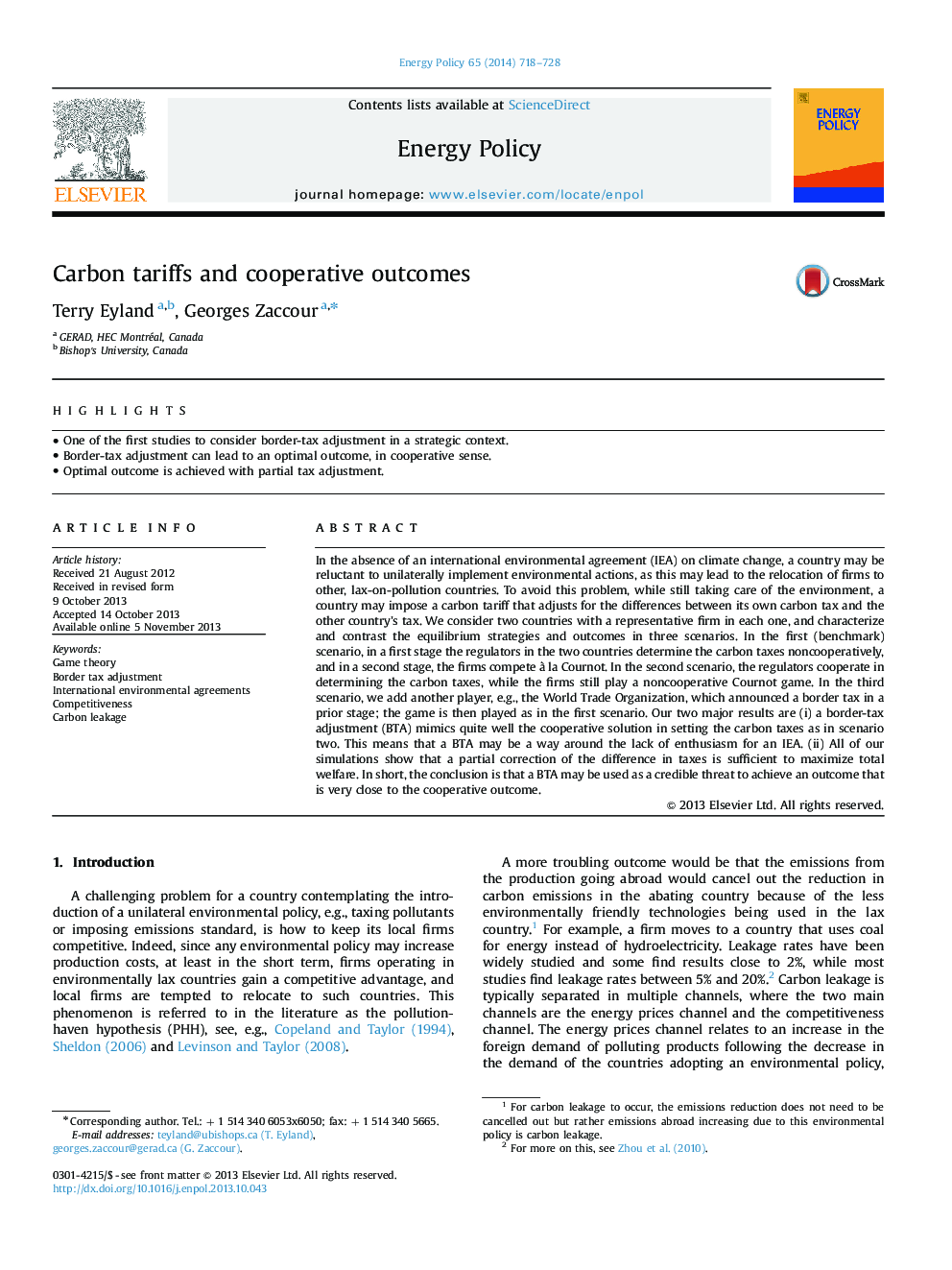| Article ID | Journal | Published Year | Pages | File Type |
|---|---|---|---|---|
| 7403693 | Energy Policy | 2014 | 11 Pages |
Abstract
In the absence of an international environmental agreement (IEA) on climate change, a country may be reluctant to unilaterally implement environmental actions, as this may lead to the relocation of firms to other, lax-on-pollution countries. To avoid this problem, while still taking care of the environment, a country may impose a carbon tariff that adjusts for the differences between its own carbon tax and the other country's tax. We consider two countries with a representative firm in each one, and characterize and contrast the equilibrium strategies and outcomes in three scenarios. In the first (benchmark) scenario, in a first stage the regulators in the two countries determine the carbon taxes noncooperatively, and in a second stage, the firms compete à la Cournot. In the second scenario, the regulators cooperate in determining the carbon taxes, while the firms still play a noncooperative Cournot game. In the third scenario, we add another player, e.g., the World Trade Organization, which announced a border tax in a prior stage; the game is then played as in the first scenario. Our two major results are (i) a border-tax adjustment (BTA) mimics quite well the cooperative solution in setting the carbon taxes as in scenario two. This means that a BTA may be a way around the lack of enthusiasm for an IEA. (ii) All of our simulations show that a partial correction of the difference in taxes is sufficient to maximize total welfare. In short, the conclusion is that a BTA may be used as a credible threat to achieve an outcome that is very close to the cooperative outcome.
Keywords
Related Topics
Physical Sciences and Engineering
Energy
Energy Engineering and Power Technology
Authors
Terry Eyland, Georges Zaccour,
